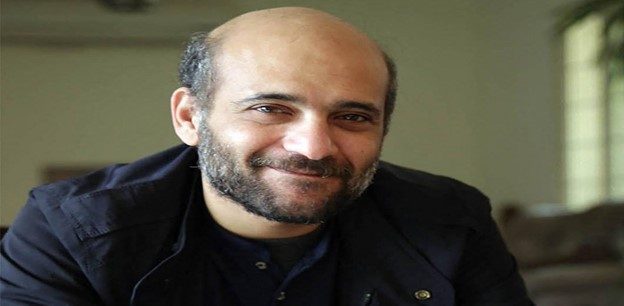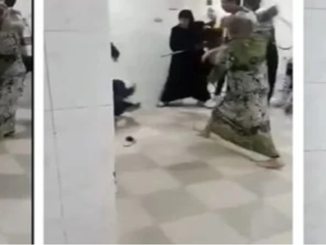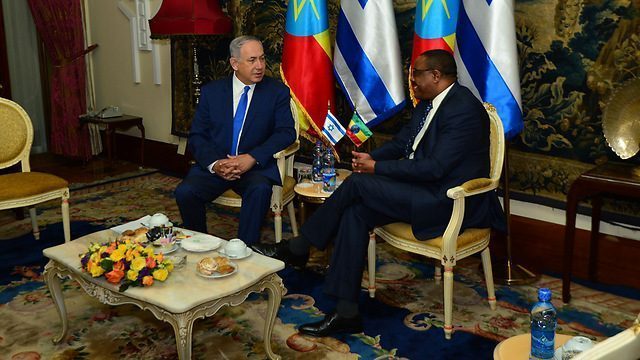
A campaign to free jailed activist has called for releasing Ramy Shaath upon appeals from his family to see his 83-year-old father who has suffered a severe deterioration in his health.
The campaign to free Ramy Shaath, the co-founder of Egypt’s pro-Palestinian Boycott, Divestment and Sanctions (BDS) movement, renewed its call on Wednesday for his release on humanitarian grounds so that he could be reunited with his ailing father, according to MEE.
The campaign said that in the last week of September, Nabil Shaath, a former Palestinian foreign minister, had experienced a severe deterioration in his health.
It said that at the age of 83 he has been suffering from serious medical issues and been in and out of hospital.
Ramy Shaath’s family said it had already lost one son, rights activist Ali Shaath, to a heart attack, and that Shaath’s father was “now deprived of Ramy’s presence and support in such a critical moment”.
Shaath was placed on a terrorism list by an Egyptian court in April 2020, which carries an asset freeze and travel ban.
He surpassed his maximum two-year pre-trial detention period in July 2021 and remains detained in Egypt’s Tora prison.
Shaath’s family said he had reported his own personal health issues, as well as alarming conditions in the prison, which is south of Cairo.
The campaign said that in the past week, a prisoner in an adjoining cell to Shaath was killed during an outbreak of violence, and prison guards had conducted humiliating raids and become increasingly abusive in response.
“After losing my mother this summer, I suffered through my grief without my husband by my side,” said Shaath’s wife, Celine Lebrun-Shaath.
“We can’t lose any more precious moments with our loved ones. Ramy should have been released long ago, and our family must be reunited immediately.”
Since the military coup that ousted his democratically-elected predecessor Mohamed Morsi in 2013, Egyptian President Abdel Fattah el-Sisi has overseen what rights groups have described as the worst crackdown on human rights in the country’s modern history.
Thousands of supporters of Morsi, who hailed from the Muslim Brotherhood, as well as secular activists, have been detained since the coup.
Many have died in custody due to poor prison conditions and medical negligence.
Last month, Sisi announced his government’s “human rights strategy”, which rights groups have criticized as insufficient amid the continued detention of tens of thousands of political prisoners.
Sisi has said he will free some prisoners on Wednesday, to mark the 6 October anniversary of the beginning of the 1973 Arab-Israeli War.
The United States said in September that new conditions over Egypt’s human rights record would affect a share of the $1.3bn in military aid that it sends to the country each year.
After what was described in the Washington Post as “lengthy deliberations,” US State Department officials and congressional aides said the government would be providing $170m to Egypt for counterterrorism, border security, and nonproliferation.
They said an additional $130m would be provided, on the condition that the Egyptian government ends its harassment and repression of human rights organizations.
However, the move provoked anger from rights groups, who have said that the conditions attached to the aid did not go far enough in addressing the Egyptian government’s abuses.
Last week, US national security adviser Jake Sullivan said he had raised the issue of human rights during talks with Sisi in Cairo.
The campaign to free Ramy Shaath said that after more than two years of intense advocacy and campaigning for Shaath’s release, it believed this was a critical moment to secure his release and the chance for him to spend time with his ailing father.
Last February, UN experts urge the Egyptian authorities to remove Ramy Shaath and Zyad El-Elaimy from a “terrorist” list and to stop the systemic misuse of counter-terrorism powers. The matter was heard on appeal yesterday, and is scheduled to be decided on 10 March 2021.
“We are deeply concerned about the impact on the rights of Mr. Shaath and Mr. El-Elaimy following this listing last year, including fair process, right to freedom of assembly and association, and the negative impact on their family life, their right to work and their right to participate in public affairs,” the experts said.
The UN experts called on authorities to implement the recent opinion of the Working Group on Arbitrary Detention finding that Mr. Shaath was arbitrarily detained, and he should thus be immediately released. The Working Group found that the proceedings placing Mr. Shaath on a terrorist list violated the presumption of innocence, in breach of article 14 (2) of the Covenant.
“We are deeply disturbed about counter-terrorism law, its definitions, misuse and the practice by the Egyptian authorities, and in particular the misuse of listing procedures at national level, to attack individuals engaged in human rights work,” the experts said. “The continued misuse of counter-terrorism powers is not consistent with the State’s international law obligations and undermines broader international efforts to prevent terrorism by misusing such powers domestically.”
Messrs. Shaath and El-Elaimy were arrested in June 2019 and Mr. Shaath’s remand detention was renewed for another 45 days on 24 January 2021, for the 21st time in 19 months. “This is very alarming and we call for the immediate implementation of the Working Group’s opinion,” the experts said.
“We are highly concerned by the fact that Mr. Shaath and Mr. El-Elaimy appear to have been placed on a terrorist list without evidence, by the Egyptian Prosecutor on 17 April, 2020, in the absence of the defendants,” they said. “Such absence of process is profoundly regrettable and raises concern that the authorities are targeting human rights defenders and civil society actors.
The experts urged the Government to respect its fair trial rights obligations and to ensure that measures to combat terrorism and preserve national security are in compliance with its obligations under international law and do not hinder the work and safety of individuals, engaged in promoting and defending human rights.
“These cases are among many others in the past five years in which the Working Group has found the Government of Egypt to be in violation of its international human rights obligations,” the experts said. “We are concerned that this indicates a systemic problem with human rights protections in Egypt, as well as a systemic problem in the abuse and misuse of counter-terrorism laws and practices.”



